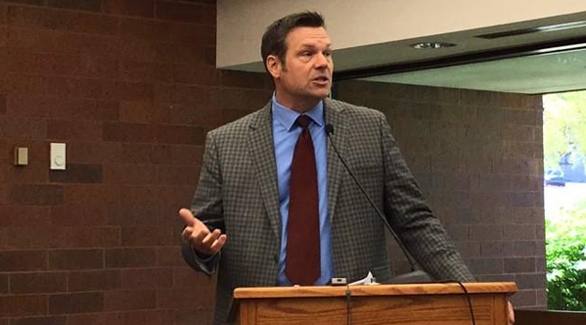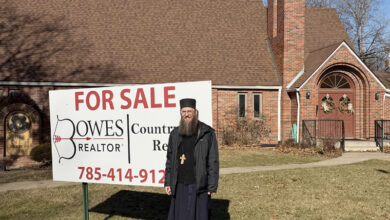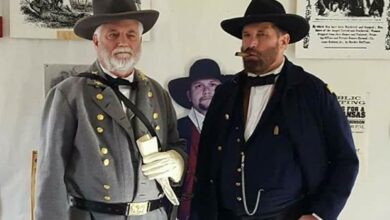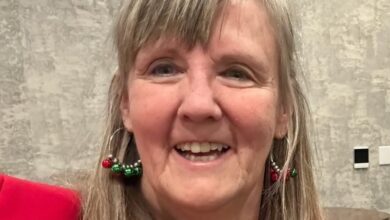Kobach goes to court to fight legal challenge to Kansas’ proof-of-citizenship law

A Kansas law requiring proof of citizenship on voter registration forms goes on trial this week in federal court. Kansas Secretary of State Kris Kobach wants to prove his assertions that voter fraud isn’t just a risk, but a real and widespread problem.
If he fails to do that in court, the state may no longer be able to block voter registrations at driver’s license offices for failing to show such things as birth certificates or passports to prove citizenship.
Rick Hasen, a professor of law and political science at UC Irvine, says a Kobach win would allow other states to impose their own stricter voter registration laws to combat voter fraud.
The case will also draw attention because of Kobach’s national role in promoting the idea that immigrants game the American electoral system. Kobach’s statements have made national headlines, especially after he began talking to President Donald Trump about overhauling federal election law and backed his assertion that millions of illegal voters may have cost him the popular vote to Hillary Clinton.
“It does seem that many in the Democrat party — hopefully not all — seem to think that it’s OK if aliens vote,” Kobach told Fox News ahead of this week’s trial. “Heck, it helps the Democrat party.”
Kobach is also vying to become Kansas’ next governor.
Now comes the trial in Kansas City. It could last more than a week and is one of several legal challenges that have tied up Kobach’s Secure and Fair Elections, or SAFE, law in state and federal courts.
Since 2013, that law has required Kansans who want to vote to back up their assertion of American citizenship with papers.
Opponents of Kobach’s law say it disenfranchises people who lack such documents.
The American Civil Liberties Union represents the League of Women Voters and several Kansans who were blocked from voting. They took Kobach to court.
This week’s trial gives ACLU a chance to scale back Kobach’s law by leaning on the 1993 National Voter Registration Act — often called the Motor Voter Act. That law says swearing your citizenship under penalty of perjury is sufficient for registration. Liars risk prison, fines and deportation.
If the organization succeeds, Judge Julie Robinson of the US District Court for the District of Kansas will block the Kansas law when it comes to anyone registering through the DMV process created by that 1993 law.
That motor-voter process, which boosted voter registration nationally, allows streamlined registration while getting or renewing a driver’s license.
In court filings, Kobach argues the motor-voter process isn’t rigorous and lets non-citizens slip through.
“The SAFE Act was what finally provided a tool to prevent non-citizens from registering to vote,” he wrote.
Kobach’s briefs indicate at least 43 suspected non-citizens registered in Kansas since 2000, and 11 voted.
In this round of the fight, Kobach will present statistical estimates and other research that he argues point to much higher rates of fraud existing without being detected.
Whatever the outcome following this week’s trial, it could feed into court challenges elsewhere or clear the way for more states to mimic what Kobach has done in Kansas.
Arizona, Georgia and Alabama have laws similar to the one in Kansas, though the latter two aren’t currently implementing theirs.
Hasen, the law professor, says the narrow victory by George W. Bush over Al Gore in the 2000 presidential race underscored for Republicans and Democrats that “the rules of the game matter.”
“We’ve seen the emergence of what I call red state election law and blue state election law,” he said. “States with Republican legislatures and governors have been passing laws that make it harder to register and vote. States with Democratic governors and legislatures have been passing laws that make it easier to register and vote.”
Why? Hasen says the theory, at least, is that the people hindered or helped by these laws are likely to vote Democrat.
– from KCUR.org








